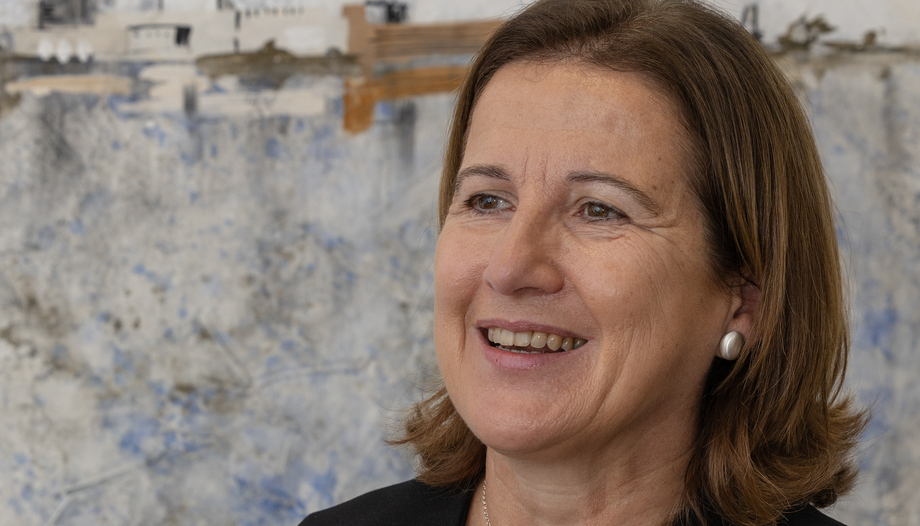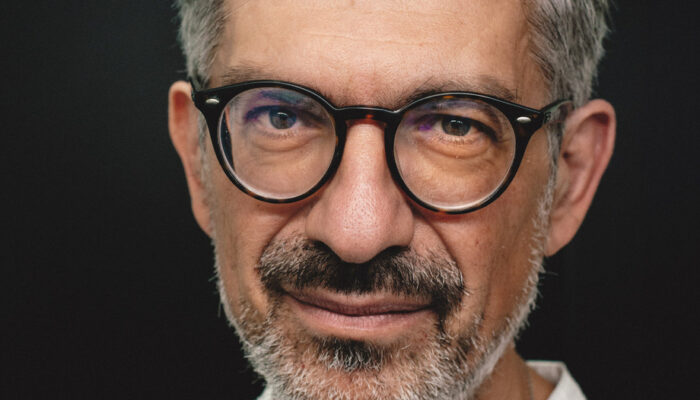The teacher of the International University of Catalonia and collaborator of OmnesMontserrat Gas Aixendri was one of the speakers at the XXXII Updating Course in Canon Law organized by the University of Navarra School of Canon Law under the title Canon Marriage Law and Due Process'..
Gas, an expert in family accompaniment, focused her lecture on "The validity of marriage and the lack of faith", a perennial current issue in our society and about which Omnes wanted to talk to Professor Gas.
You speak of the current challenge posed by the increase in marriages between baptized but non-believing persons. What do you see as the main pastoral challenges facing the Church in these situations and how can they be effectively addressed?
-In general, throughout the Christian West, the phenomenon of secularization is a reality that affects everyone. In relation to the marriage This implies that inevitably many of those who ask to marry in the Church do so for reasons of custom or tradition, rather than for personal convictions. However, this does not mean that they do not want to marry, or that they do not accept Christian marriage. Therefore, the great challenge of family ministry is to accompanying young people who wish to start a family.
Preparation for this important moment of life should be a priority for pastors. Pope Francis has insisted on this point on various occasions, suggesting the realization of an authentic catechumenate to help mature those who wish to marry. The fruit of this are the Catechumenal Itineraries for Christian Life published by the Dicastery for the Laity, Family and Life in 2019. This document should inspire the particular Churches to improve this preparation itinerary. This preparation should be geared towards a thorough understanding by the contracting parties of the meaning of married love.
The fact that marriage has been elevated to a sacrament does not change the substance of the marriage of the beginning (or natural marriage), but adds a supernatural meaning and dimension to it.
Montserrat Gas Aixendri
One of the issues you address is the notion of "object of consent" in sacramental marriage. How do you consider that lack of faith can influence the understanding of Christian marriage? Is it possible for this lack of faith to affect the validity of marriage?
-First of all, I would like to emphasize that getting married is not an act of blind adherence to the models presented by the dominant culture. Marriage is first and foremost a decision of unconditional, faithful and fruitful love between a woman and a man. As the theologian Carlo Caffarra affirmed, the original evidence of the family is written in the nature of the human person, for the truth of marriage is inscribed in the hearts of people.
Nevertheless, those who live in a secularized context and are unfamiliar with the Christian message can be influenced by what Pope Francis calls a "worldly vision of marriage," in which marriage is perceived as a form of affective gratification that can be constituted in any way and modified when the beloved person no longer fulfills his or her expectations (Francis, Address to the Roman Rota, January 23, 2015). However, the connections between situations of lack of faith and the nullity of marriage are not automatic: they must be analyzed on a case-by-case basis, noting that one of the essential elements of natural marriage has been rejected.
Regarding the role of faith in the validity of marriage, you point out that no explicit act of faith is required on the part of the contracting parties. How does the Church interpret the concept of "intention to do what the Church does" in these cases, especially in marriages between people with different degrees of faith or between people who have abandoned the faith?
-The doctrine on the sacraments indicates as a necessary condition to administer them validly, to have the intention of doing what the Church does. In the case of marriage, "what the Church does" is natural marriage itself, that is, the unconditional and fruitful self-giving between a man and a woman. The fact that marriage has been elevated to a sacrament does not change the substance of the marriage of the beginning (or natural marriage), but adds to it a supernatural meaning and dimension.
Undoubtedly, those who have faith have more supernatural resources to love unconditionally and to live a faithful and fruitful marriage; but this does not imply that those who are not believers are not capable of giving themselves in marriage to another person. Marriage is a reality created by God for all mankind, regardless of their beliefs. For this reason, marriage is not a matter of faith, but of conjugal love.
Despite what we have pointed out in the previous question, lack of faith can influence the validity of marriage through the exclusion of the supernatural dimension of marriage. How should this "influence" of lack of faith on the validity of marriage be interpreted, and what role does the correctness of the intention of the contracting parties play in this process?
-As I have said, the sacrament does not modify the essential elements of marriage as willed by God (one, indissoluble, fruitful). The fact of rejecting the sacrament (the supernatural meaning) does not influence the validity of marriage as long as the will of a truly matrimonial self-giving between spouses remains intact. It would be possible for someone to reject the sacred and, in spite of this, to want to unite unconditionally and fruitfully with the person he or she loves.
In my experience, a lack of faith will often lead to a situation of ignorance regarding the sacramentality of marriage, and therefore to a psychological attitude of indifference rather than rejection of the supernatural.
However, if this departure from the faith were to lead the contracting parties to reject marriage itself, as instituted by God, then we would be faced with a null union.
We should move from a pastoral ministry of (punctual) services to a pastoral ministry of accompanying people in their entire Christian life journey.
Montserrat Gas Aixendri
In the same vein, what consequences can this perspective have on pastoral practice and on the interpretation of marriage nullity cases in the Church?
-Preparation for the celebration of marriage is, as I have said, an essential moment to ensure a marriage that is not only valid, but also fruitful. However, it is important to distinguish these two levels. In the case of persons far from the faith, preparation for marriage requires first of all to ensure validity. It is important to bring out the true intentions of the contracting parties so that they can be accepted for the celebration of a true marriage.
At the same time, there should be consistency between the provisions required for admission to marriage and those that are considered at the time of examining a possible nullity. A false impression could be given that the door of access to marriage in the Church is too wide and the criteria by which validity is subsequently judged too narrow.
You allude to the need for proper preparation for marriage, especially in cases of couples far from the faith. How do you balance the need to prepare couples for a valid marriage with the importance of fostering a deeper understanding of the sacramentality of marriage within family ministry?
-Those who are pastorally involved in marriage preparation should not only be concerned with ensuring the validity of marriage, but also with helping the couple to discover the greatness of the sacramental gift. Awareness of the vocational character - human and Christian - of marriage opens new horizons, making it evident that the sacramental gift is destined for the personal and relational sanctification of the Christian family, showing the beauty of marriage lived in accordance with baptismal dignity.
In my opinion, perhaps what we lack are pastoral structures that are really capable of accompanying these engaged couples. We should be able to accompany them in their preparation and, above all, throughout their married life.
We should move from a pastoral care of (punctual) services to a pastoral care of accompanying people in their entire Christian life journey. This is one of the challenges that should most challenge those involved in family ministry.








